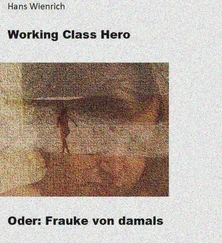“Roscoe, what brings you here?” He is crouching down, the silliest watering can in his hand, a miniature thing, fit for a child.
“On my way to the library.”
“Taylor gave you a day off?”
“We lost one of Maggie’s pups.”
Chaplain sighs, a deep, heavy breath that shakes his frame, then he holds the watering can out toward me, and like a fool, I take it. He goes inside his church without saying anything. He has disappeared before I realize he’s going, and I’m alone with that dog in a hole behind me and this watering can in my hands and these unnamed flowers at my feet.
This is Kilby Prison. We exercise in a dusty yard. Around it, a high wall is strung with wire, and in that wire is electricity, enough electricity to kill me and George Haskin and anyone, more than they run through Yellow Mama. Listen. Electricity so strong, you can hear it. A chapel is here, and our chaplain has planted flowers. They are red and blue, and because I do not know their names, I feel that they are foreign. They are not Alabama’s flowers. But they are ours.
Nothing precipitated Wilson’s arrival — no letter from the state that had sold him or the mining company that had leased him. Wilson was gone, and then one day he was standing on the front porch.
Marie and Gerald were returning from their lessons in Rockford.
“Who’s that?” Gerald asked.
Marie squinted her eyes. “Charles?”
Gerald shook his head. “Too tall.”
They kept walking, pecan shells under their feet. Marie’s mind filled up with the crunching and cracking, the sharper moments when a shell caught the sole of her shoe in a way that nearly pierced the leather. She could almost feel the pain it would cause. A great hope was in her, something growing like a child in her stomach. She knew that frame and height, familiar as the land around her, familiar as her father’s house. She wouldn’t let herself look at the porch again, though, wouldn’t allow herself another glance until her sight would be clear and solid.
Gerald started hollering when they were about ten yards from the house, his now-long legs sprinting him forward and up those peeling porch steps. Marie tried not to hear the name her son was shouting until she was there, right next to him.
“Wilson.”
Gerald stepped away.
Marie saw Wilson’s arm, but she brought herself forward first, letting herself ignore it for the moment of his holding her, brief and chaste. Marie had put her arms around Wilson on so few occasions — the birth of Charles, her own father’s death — that they kept them light and quick. Maybe it was history pressing on them, the deep color-divided lines of their state, but maybe it was just their nature, neither of them in need of lengthy contact. Marie liked to assume the latter.
She stepped back to see Wilson fully. She closed her eyes, the picture sharp in her mind, projected against the backs of her eyelids. There was Wilson — tall and broad, a denim shirt tight across his shoulders, one sleeve of it flowing down to his right hand, the other sleeve cut short at the elbow. His left forearm was gone, the wrist and hand. Those fingers that he’d always had, capable of such work, gripping and turning and lifting — they no longer existed.
“It’s all right.” Wilson placed his one hand on Marie’s shoulder. “I’ve made my peace with it.”
“How?”
“It got me out of the mines.”
“You shouldn’t have been in the mines in the first place.”
Wilson smiled. “That’s a matter of opinion, Miss Marie.”
Marie heard Moa’s voice: “Wilson?” His name was a question, not that of a person standing there on the porch. His name was of a ghost, something as dead as his arm, something looking for its place. Moa didn’t move from behind the screen, and Marie watched her eyes rove over her husband, taking in the hair cropped close to the scalp, the new scar lines on his neck and cheek and remaining hand, the same wide-open face, and then the sleeve rolled and pinned where his left arm used to hinge.
“Oh.” Moa rushed from the house. She grabbed Wilson by the neck and covered his face with her lips, every centimeter, every ridge and dip — eyes, brows, nose, cheeks, lips, temples, forehead, lips again. And again. “Oh, Wilson.” She gasped his name like air. Then, Moa moved her attention to the remains of his arm. She gripped the biceps under its cotton, and Marie watched her fingers exploring whatever muscle and bone must be left there. Moa felt down to the pinned roll, and Marie found herself curious about what the flesh must feel like, puckered and swollen and scarred.
“I went to our place,” Wilson was saying to Moa, “but no one was there, and I was trying to figure how to knock on this door when Gerald and Miss Marie came up the drive.” It wasn’t their place to have seen him first.
Moa put her hand on Wilson’s shortened arm.
“This is Roscoe’s fault,” Marie said, already starting new blame, replacing the unconfirmed knowledge of Wilson in a dark mine shaft with this new, fragmented man in front of her. Roscoe had done this. He had employed Wilson in his crooked work, and he had left him to the destruction of greedy coal miners and foremen, to the self-serving hand of the State, selling off its convicted men for pennies. Roscoe was the new face of convict leasing, the new villain and perpetrator. He was the foreman, the owner, the coal itself, hunkering deep in the earth, hard to reach, tempting and tempted, looking for a fiery explosion to set it free.
“Now, Ms. Marie,” Wilson said. “I knew what I was doing.”
Moa spoke over them. “Come inside. Let’s all go inside. I’ll make us some coffee, and you can tell us what’s happened. Oh, my love. Oh.”
Gerald stepped forward — Marie had forgotten him for a moment, hidden back behind Wilson — and she caught him by the arm. “Go find Charles and Henry, and Jenny. Get them to come to the house.”
“Yes, ma’am.”
Marie trailed behind as Moa led Wilson to the kitchen. Moa held that shadowed arm as though the rest of it might disappear should she let go. Marie could see it — the slow disintegration of this incomplete man. First, that stranded biceps and its shoulder would go, then the chest and neck, the evaporation traveling down at a quicker rate, taking his stomach and hips, his thighs and knees and shins, his ankles and feet, and then his face would dissolve, one feature at a time: chin, lips, cheeks — all those places Moa had just kissed — gone. They wouldn’t be able to tell whether he’d been there to begin with, or whether they’d simply wished him there, conjuring him out of their great need.
Wilson sat on a stool at the butcher-block table, and only then did Moa let loose of him. She went to get the percolator from the stove, and Marie stopped her before she made it to the sink. “Sit with Wilson. I’ll make the coffee.”
Moa relinquished the pot without a word, but didn’t sit. Instead, she pulled his great head against her chest, the fingers of one hand turning small circles along his temple and forehead, up into his hairline and then back down. Her fingers had turned the same circles on Marie’s back when Marie was a little girl, stranded in the dark of her room after her mother’s death — night was the only time the hurt could control her. “There, there,” Moa would say. “Hush, now.” She’d coax young Marie back down to lying, then trace her long fingers in slow circles up and down Marie’s small back. Marie had spent her childhood falling asleep to that touch, and she remembered it stronger than any specific intimacy she’d shared with her mother.
The Grice children came in while the water was heating, all three of them falling over themselves to get at their father, all three of them letting out the same remorseful wail upon seeing the missing arm. “No,” they said, and “Papa.” Marie watched Wilson’s family encircle him, all of them pressing into him, their words split between joy and lamentation, excitement and anger.
Читать дальше












